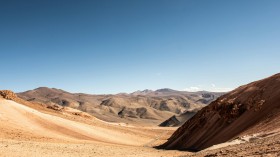The 2008 mass stranding of some 100 melon-headed whales in northwest Madagascar was triggered by sonar mapping carried out by an ExxonMobil survey vessel, according to a new study.
Contributing to the report was the International Whale Commission, the US Marine Mammal Commission, the US national Oceanic and Atmospheric Administration and the US Bureau of Ocean Energy Management, among others.
According to their findings, the event marks the first known mass marine mammal stranding proven to be closely associated with high-frequency mapping sonar systems currently used by the hydrocarbon industry, military and research vessels representing other industries. This discovery, according to the Wildlife Conservation Society (WCS), raises concerns over the impact of the noise on marine mammals.
"Implications go well beyond the hydrocarbon industry, as these sonar systems are widely used aboard military and research vessels for generating more precise bathymetry (underwater mapping)," Howard Rosenbaum, director of the WCS's Oceans Giants Program, said in a statement.
At the time of the mass stranding, the WCS and International Fund for Animal Welfare (IFAW) joined together to help return live whales to the open sea and conduct necropsies on those that died in hopes of determining the cause of death.
"Mass stranding response is challenging under the best of circumstances. Together with local individuals and the government of Madagascar, we provided the expertise to rescue as many animals as possible and medical care to those that stranded alive," said Katie Moore, director of animal rescue at IFAW. "Equally important was to gather as much data as possible from the animals to address the root cause of the stranding."
Moore and Rosenbaum both expressed their hope the study will influence policy regarding the use of sonar.
"We now hope that these results will be used by industry, regulatory authorities, and others to minimize risks and to better protect marine life, especially marine mammal species that are particularly sensitive to increasing ocean noise from human activities, " Rosenbaum said.
© 2024 NatureWorldNews.com All rights reserved. Do not reproduce without permission.





